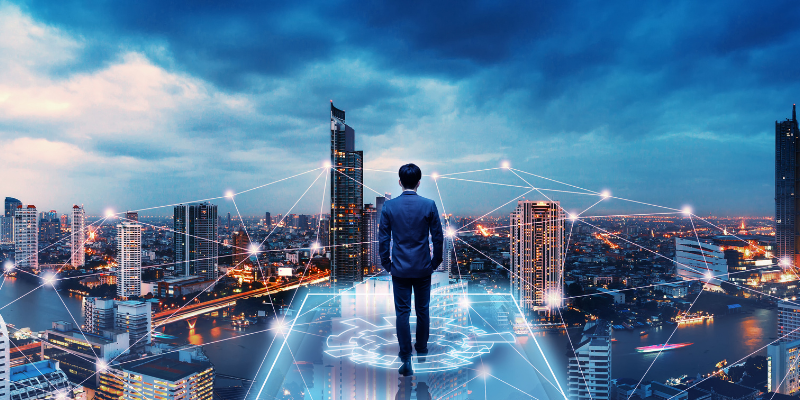
Updated 3:18 AM CDT, Tue October 11, 2022
Published Under: Definitions

How does Web 3.0 Differ from Web 2.0?
There isn't a concrete idea of exactly what Web 3.0 is, yet. It is clear that we are already moving to something beyond Web 2.0. There are some characteristics that most of us professionals agree have shown a recent evolutions of the web and where those changes are heading next.
- Instead of pages of content, snippets of information might come from a number of sources. Artificial Intelligence won't just deliver the most relevant page of information but the most relevant bits from a variety of sources - each source potentially having a number of contributors. Example: The way sites like Wikipedia ushered in Web 2.0 by allowing a number of authors to contribute to knowledge on a topic, various sites, each containing content from a variety of users will all come together in real time as they're queried. The lines between content creators and content consumers will be further blurred. Virtually everyone will be creating and consuming content regularly. Example: The ways that blogs gave anyone a chance to be a writer and YouTube allowed anyone to be a video producer will extend to virtually every way we take in and create media.
- Results will be even more personalized. AI and machine learning will tailor every individuals experiences to that person. Example: The way Google SERPs continually work to use more 3-dimensional ideas of what a person likes, wants or needs to deliver very specific search results will expand further beyond Google and other search engines.
- Interaction between social channels, video, audio, written content, collaborative documents, games, apps, email, texts, voice interactions, and more will be seamless. Instead of deliberately moving our attention from one to another as we consciously choose, our online lives will flow among different channels. Our relationships with our online worlds will be more natural. Instead of looking at a computer screen or a phone; or instead of asking Siri, Alexa or Google voice assistants, we'll look at, listen to, speak to, and feel the interactions with less awareness that a device is processing each. Example: Consider how accessibility features make screens unnecessary for browsing, or how video subtitles make audio unnecessary for quiet environments or those with audio impairments. They ways technology had to adapt to those needs show people how to use whichever senses are most practical for them in that moment to interact or even to use different senses in a given moment to engage with different media.
- Our financial and professional lives will become ever more convenient. Investing, borrowing, paying, and getting paid will be possible without paper or plastic. Increasingly so, those transactions will happen without even consciously interacting with a device.
- Barriers of language and distance will be further broken down. Professional and casual interactions will look less like video calls. Real-time speech translation will allow an English speaker, Mandarin speaker and a hearing impaired person to all participate in the same conversation without uncomfortable pauses.
Will the Differences between Web 2.0 and Web 3.0 be Similar to the Differences between Web 1.0 and Web 2.0?
In some ways, these differences will be a continuation in the direction Web 2.0 initiated. Where Web 2.0 brought us away from the idea that some people are content creators - others merely consumers, Web 3.0 will continue to decentralize the idea of authority on topics. Web 2.0 allowed the masses to put virtually everything people know into text, video, diagrams and podcasts. Web 3.0 will make that knowledge ubiquitous and more instantaneous. Also, where Web 2.0 moved us from desktop and laptop screens to phones, Web 3.0 will further take us from the idea that looking at and touching any type of device is necessary to interact.
What Problems could Web 3.0 Bring?
The prospect of having instant access to information and a less screen-focused existence seems utopian. However, the changes described above are likely to bring new challenges. Many may be hard to predict, but there are certainly some areas we consider worrying.
- With less clarity on who is or is not an expert on a topic, it has become hard to determine what is truth. That seems likely to continue.
- The faster pace of everything from work and money to communication seems sure to bring more carelessness in those regards.
- Breaking down barriers, such as location and language opens the doors to more consolidation, potentially making it harder for small, independent businesses to find their place.
Comments